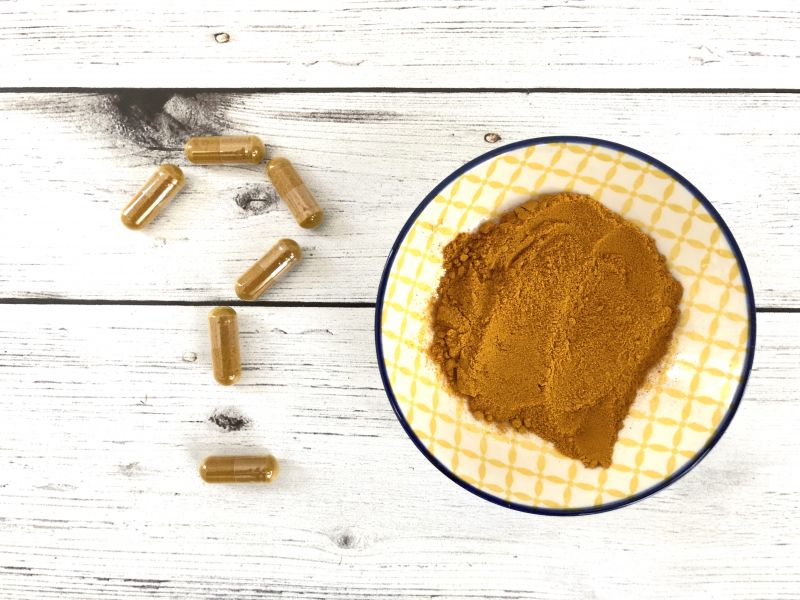Friend or foe: turmeric
“One man’s food is another man’s poison.” - Lucretius
There’s a bigger and bigger community, that takes turmeric as a supplement, or drinks it as golden milk. Most websites talk only about the positive features of turmeric, they call it superfood.
And really, turmeric can have wonderful effects on the human body. It can be used as a painkiller, antidepressant, anti-inflammatory, it can help skin conditions, arthritis …
But is it for everybody?
A bit of genetics …
We, as human beings might look and function very similarly. But that doesn’t mean, that we work the exact same way. All of us is unique. The genes, that we inherited from our parents, our environment, our special circumstances make us different.
These differences influence how we react to different things, like carbohydrates, fats, salt, caffeine, alcohol, stress, toxins, vitamins and minerals, medications ... and the list goes on and on.
I could start to go into details about the structure of the DNS, and how we inherit them, but that isn’t important for many people. The important bit is, how the genes can influence our life, health, wellbeing, illness, medical treatment …
There’s a gene called CYP1A2. The abbreviation comes from Cytochrome P450 1A2. This is responsible for producing a specific liver enzyme.
Enzymes are responsible for breaking down different substances in our body. They help digestion and elimination of unwanted things, like toxins.
This CYP1A2 responsible for the metabolism of estrogens and caffeine...
Every enzyme has inducers, that make the given enzyme work more actively, and inhibitors, that make it less active.
How turmeric comes to this picture?
Imagine that our genes are pearls on a chain. A chain never is perfect, there are always weaker or very weak bits in it.
Some (many?) people has a so called SNP (pronounce as snip, single nucleotide polymorphism) on this CYP1A2 gene. This means, that there’s a mistake on the chain at this gene. For some people it’s just a bit weaker, for some other, it’s really weak.
There are people without this certain genetic variation, who can have turmeric and caffeine without any issues. But as soon, as this gene is has a mutation, that slows down the enzyme production, this situation might become different.
In case of this CYP1A2 enzyme, turmeric is an inhibitor, so it makes this enzyme less effective.
Lets say, you want to clean the house. But someone does something to your vacuum (hoover) and its suction weakens a lot. Or your vacuum picks up something, blocking the airflow partially, so the efficiency decreases. Due to this difficulty, it takes longer for you to finish cleaning, if you can complete it at all. Turmeric has this kind of effect on the CYP1A2 gene and enzyme production.
As I have mentioned before, this enzyme is responsible for processing, getting rid of used estrogen, and xenoestrogens.
Xenoestrogens are chemicals, that mimic our own estrogen. While they mimic our own estrogen, they disrupt, mess up our hormonal system. Xenoestrogens are everywhere: makeups, shower gels, plastics (glasses, bottles, food containers, bags), insectisides used by farmers on our foods, artificial food colorings, preservetaives… And the list goes on and on …
So people, who have some sort of genetic variation on this CYP1A2 gene has a harder time to get rid of even their own used and unwanted estrogen. They have even more harder time to get rid of all the xenoestrogens coming from foods, beauty products, packaging materials, water … And then, just because there are websites and some people are saying that turmeric is the ultimate superfood, they start to consume it on a daily basis. These people work against themselves.
There’re more and more estrogen dominant people – men as well. There are more and more people, suffering from estrogen driven cancer or other health issues, like infertility, endometriosis, obesity. If they have this specific gene SNP, it might be counterproductive to consume turmeric therapeutically, consuming it in high dosages, not just as a spice, on a daily basis.
This gene is responsible for processing several medical drugs too. If these drugs stay in our body longer, than needed, they might cause side effects. So taking turmeric while being on some drugs can be contraindicated. Cumin and grapefruit has the same effects as turmeric.
For some people, turmeric can have a fabulous effect. For some other people don’t experience anything. And there are people, who shouldn’t really consume it regularly or at all.
If turmeric is for you, you can find the golden milk recipe here.
References
https://ghr.nlm.nih.gov/primer/genomicresearch/snp
https://publications.nigms.nih.gov/thenewgenetics/chapter1.html
https://www.medscape.com/viewarticle/475308_1
http://www.pharmacytimes.com/publications/issue/2007/2007-11/2007-11-8279
https://www.ncbi.nlm.nih.gov/pubmed/18942551
https://womeninbalance.org/2012/10/26/xenoestrogens-what-are-they-how-to-avoid-them/
https://draxe.com/turmeric-benefits/





